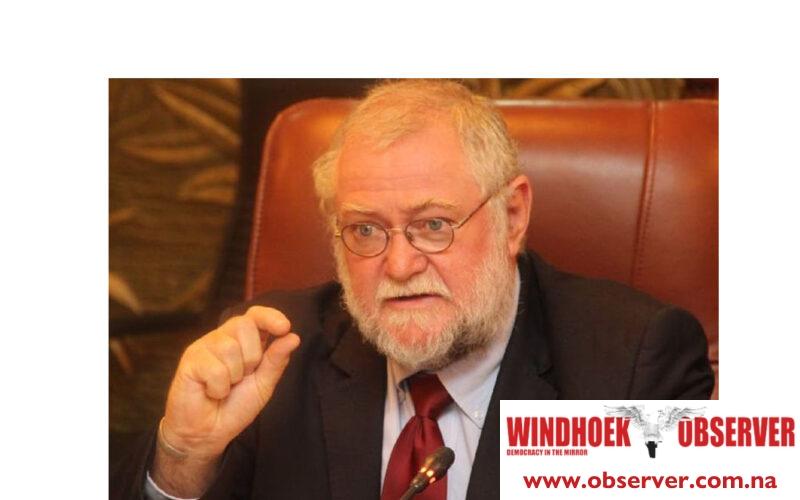Niël Terblanché
The Minister of Agriculture, Water, and Land Reform (MAWLR), Calle Schlettwein, has taken a firm stance against the continuation of exploration drilling activities by Headspring Investments, a subsidiary of Russia’s atomic agency to protect one of Namibia’s critical water resources, the Stampriet Aquifer.
This decision comes amid growing concerns over the potential exposure of the aquifer to radioactive materials and the adequacy of environmental impact assessments.
The controversy surfaced following inquiries by UPM President Jan van Wyk in Parliament, questioning the legality of Headspring Investments’ operations in the region.
Schlettwein clarified that the company’s drilling permits, initially granted by the water ministry, were revoked on November 9, 2021, due to non-compliance with specific permit conditions.
Despite this, Headspring Investments has expressed intentions to apply for new drilling permits under the new Water Resources Act, indicating a persistent interest in the exploration of base, rare metals, and nuclear fuel minerals in the Omaheke, Leonardville, and Hardap Regions.
Since 2012, Headspring Investments has conducted extensive drilling operations, amounting to approximately 600 exploration boreholes and 36 hydrogeological/monitoring boreholes across 39 farms.
These activities were initially greenlit with Environmental Clearance Certificates (ECCs) from the Ministry of Environment, Forestry and Tourism (MEFT), alongside drilling permits from MAWLR.
However, the environmental clearance has come under scrutiny for potentially overlooking the impacts on the Stampriet Aquifer’s freshwater resources, crucial for the domestic, livestock, and irrigation needs of approximately 80,000 people in the Omaheke and parts of the Hardap Regions. The Minister’s response to these concerns has been multifaceted, involving compliance monitoring visits to the drilling sites and engaging international bodies like UNESCO and the International Atomic Energy Agency for expert advice on mitigating the environmental risks associated with such extensive drilling operations.
The ministry’s proactive measures aim to prevent the potential contamination of the Stampriet Aquifer, which could have disastrous consequences for Namibia’s food security and the broader transboundary water management obligations with South Africa and Botswana. Looking ahead, the inter-ministerial Technical Committee awaits an opportunity to present its findings on the impact of Headspring Investment’s activities to the Ministerial Committee.
The outcome of this deliberation is eagerly anticipated, as it will determine the future of nuclear fuel minerals exploration within the critical water protection areas of the Stampriet Aquifer.
Schlettwein advocated for a precautionary approach, urging against the renewal of ECCs, EPLs, or the issuance of new drilling licenses in the aquifer area, underscoring the paramount importance of safeguarding Namibia’s groundwater resources for current and future generations.




